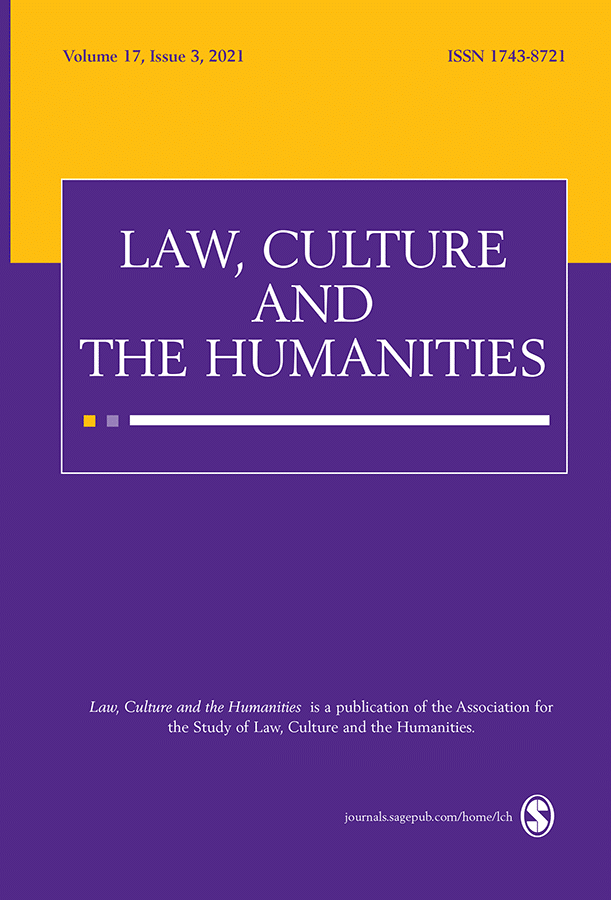Law, Culture and the Humanities is a publication of the Association for the Study of Law, Culture and the Humanities. It is co-sponsored by the Socio-Legal Research Centre at Griffith University (Australia) and Amherst College (USA) and is published three times a year.
This interdisciplinary journal publishes high quality work at the intersection of scholarship on law, culture and the humanities. It provides an outlet for people engaged in interdisciplinary, humanistically oriented legal scholarship. The mission of Law, Culture and the Humanities is to encourage dialogue across and among these fields about issues of interpretation, identity and values, authority, obligation, justice and law’s place in culture.
Crossing traditional divides to reflect the diverse nature of this exciting area, the scope of Law, Culture and the Humanities includes:
- Legal history
- Legal theory and jurisprudence
- Law and cultural studies
- Law and literature
- Legal hermeneutics
From our Latest Issue
Submission Details
Have an article you think would be good for the journal? We encourage submissions at the intersection of scholarship on law, culture and the humanities.
Editorial Board
EDITOR
Austin Sarat, Departments of Law, Jurisprudence & Social Thought and Political Science, Amherst, College, USA
BOOK REVIEW EDITOR
Jennifer Culbert, Political Science, Johns Hopkins University
ASSOCIATE EDITORS
Susan Sage Heinzelman, English, University of Texas, USA
James Martel, Political Science, San Francisco State University, USA
Keally McBride, University of San Francisco
Linda Meyer, Quinnipiac Law School, USA
William MacNeil, Griffith Law School, Griffith University, Australia
Karl Shoemaker, Department of History and School of Law, University of Wisconsin, USA


